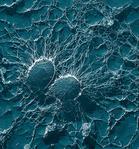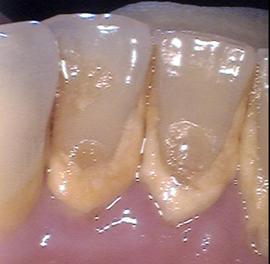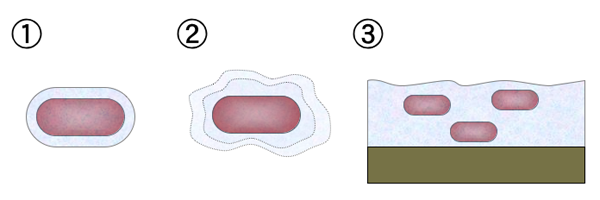 | ||||
Bacterial Glycocalyx: Capsule & Slime Layer - P2
SCIENCE PHOTOS
SPO VIRTUAL CLASSROOMS
Sources & Resources
- Bauman, R. (2014) Microbiology with Diseases by Body System 4th ed., Pearson Benjamin Cummings.
- Becker, W. M. et. al. (2009) The World of the Cell. Pearson Benjamin Cummings.
- Inside a Cell, interactive cell diagram from University of Utah.
- Tour of a Cell Video by Paul Anderson.
- Cell Structure Interactive Animation from Wiley.com.
What Is a Biofilm?
Glycocalyces are instrumental in the formation of biofilms. A biofilm is a living ecosystem made of millions of bacterial cells, their wastes and other extracellular products.
These microbial biofilms can be found everywhere, from the layer of scum hugging the bowl of an unclean toilet to the inside of the human mouth.
Oral Biofilm & Plaque
The slime layer of Streptococcus mutans allows this bacteria and others to accumulate on tooth enamel (yuck mouth and one of the causes of cavities). Other bacteria in the mouth become trapped in the slime and form a biofilm, eventually building up as plaque.
Page last updated: 4/2016
Diagram of bacterial mucoid-like structures:
1. capsule; 2. slime layer; 3. biofilm
Unchecked, this biofilm can easily reach a thickness of hundreds of cells on the surfaces of the teeth, and, over time, plaque build-up can become mineralized, eventually forming calculus (tartar).
Bacterial cells of Staphylococcus aureus bacteria. Its large capsule protects the organism from immunological defenses.
Medical Impact of Biofilms
Biofilms also have other serious medical implications. Persistent biofilms containing pathogenic bacteria can be problematic when they accumulate on damaged tissues and internal medical devices, such as catheters and pacemekers.
Calculus Buildup on Teeth
PAGE 2 < Back to Page 1
You have free access to a large collection of materials used in two college-level introductory microbiology courses (8-week & 16-week). The Virtual Microbiology Classroom provides a wide range of free educational resources including PowerPoint Lectures, Study Guides, Review Questions and Practice Test Questions.





